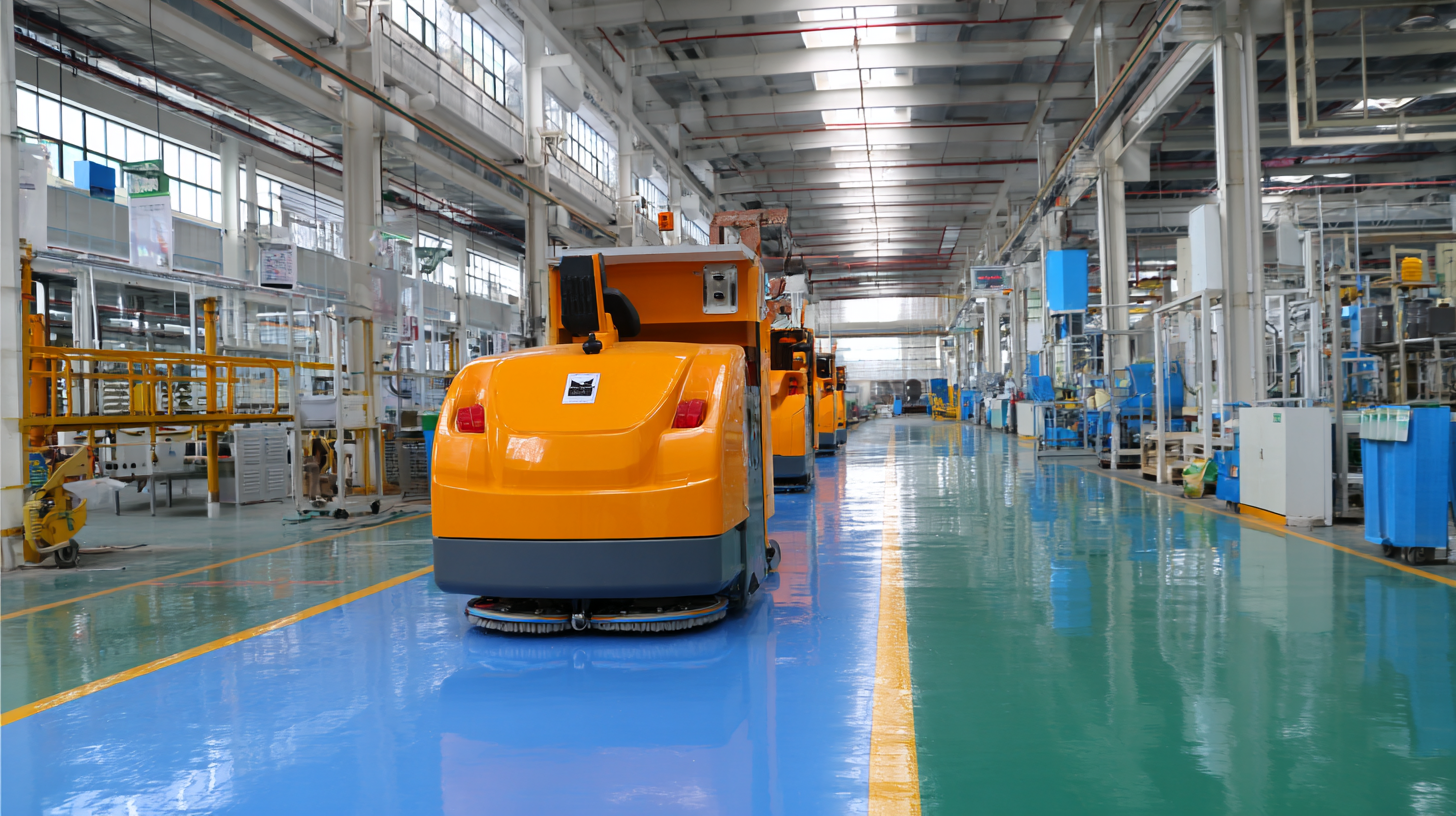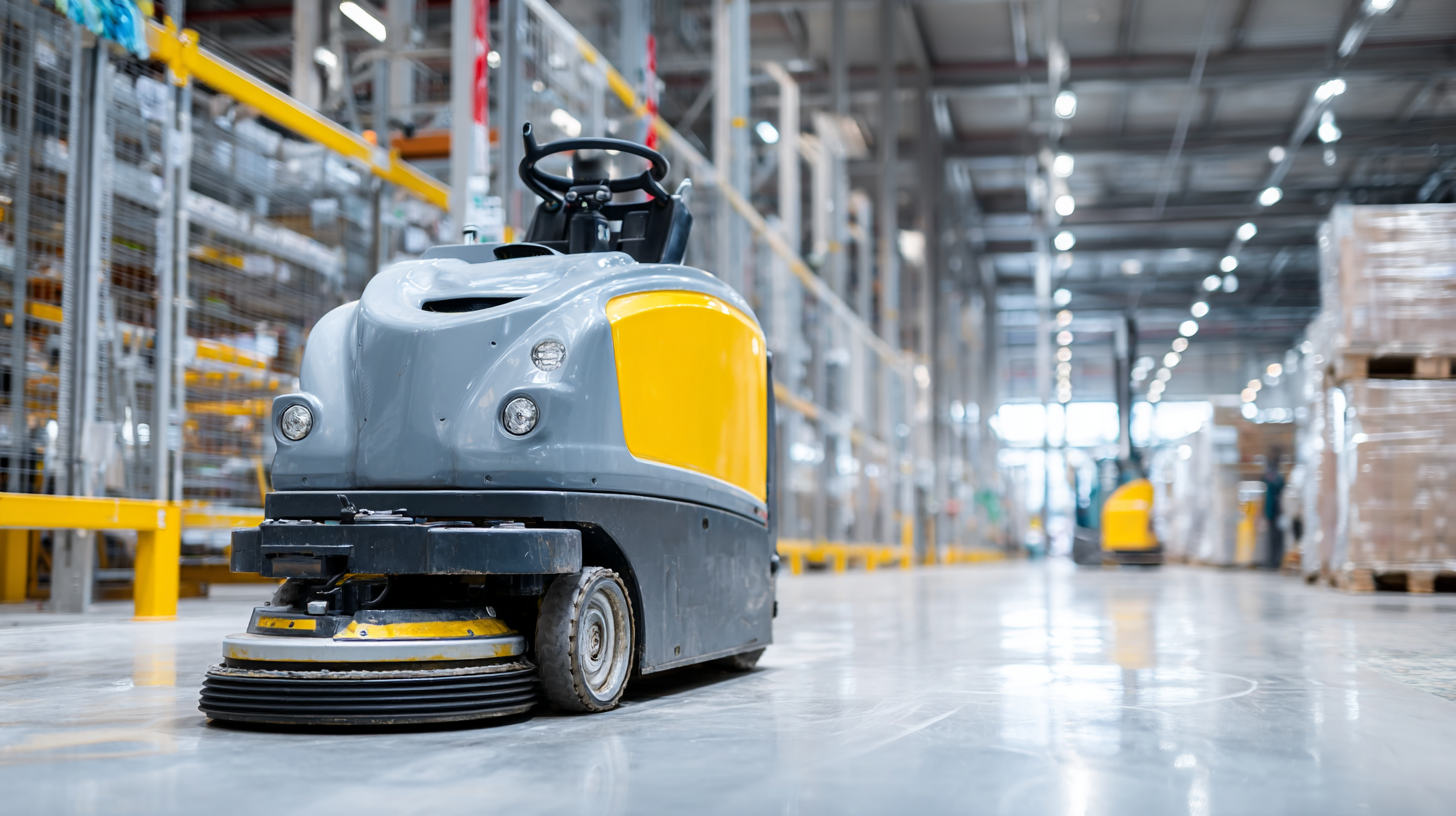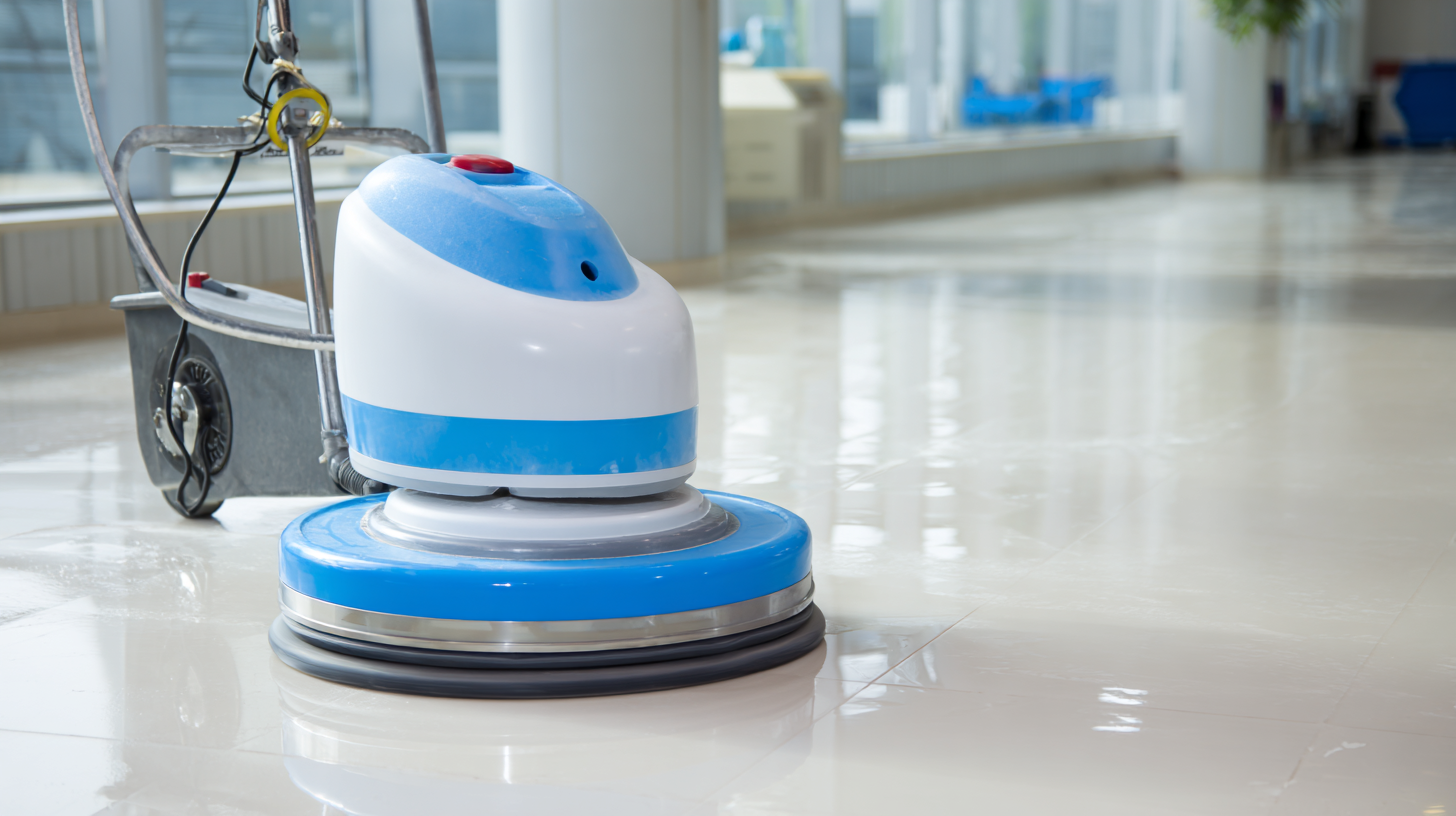Inquiry
Form loading...
In today's highly competitive market, ensuring global standards in the manufacturing of a Hard Floor Cleaner Machine is essential for success and sustainability. As consumers increasingly seek high-quality and efficient cleaning solutions, manufacturers must navigate a complex landscape of industry regulations and certification processes. The importance of import and export certifications cannot be overstated, as these certifications not only validate the product's quality and performance but also facilitate access to international markets. By adhering to stringent global standards, manufacturers can enhance their credibility and foster customer trust, ultimately leading to greater market share and improved business outcomes. In this blog, we will explore the significance of industry certifications for the Hard Floor Cleaner Machine and how they play a pivotal role in driving innovation and excellence in manufacturing practices.

The global market for hard floor cleaner machines is experiencing significant growth, driven by an increasing demand for cleanliness in commercial spaces. According to a recent market research study by Custom Market Insights, the global commercial cleaning services market is projected to reach USD 443.23 billion by 2033, growing at a compound annual growth rate (CAGR) of 6.7%. This growth reflects not just the expanding market for cleaning services but also the rising need for effective and efficient cleaning solutions, including hard floor cleaner machines that meet global standards.
As businesses prioritize hygiene and cleanliness, especially in high-traffic areas, hard floor cleaner machines are becoming essential tools. The demand for these machines is projected to rise alongside overall market growth, as companies seek reliable and efficient products to maintain cleanliness standards. The emphasis on durable, high-impact cleaning technology resonates with the industry's focus on sustainability and effectiveness, driving further innovations in hard floor cleaning equipment. With increasing investments in research and development, manufacturers are setting higher benchmarks for performance, efficiency, and environmental impact, aligning with market trends and consumer expectations.
| Region | Market Size (USD Million) | Growth Rate (CAGR %) | Key Drivers | Challenges |
|---|---|---|---|---|
| North America | 450 | 5.2 | Rising cleaning standards, increasing urbanization | High competition, cost sensitivity |
| Europe | 420 | 4.8 | Regulatory compliance, eco-friendly products | Regulation changes, market volatility |
| Asia-Pacific | 700 | 6.5 | Growing population, rapid industrialization | Supply chain disruptions, local competition |
| Latin America | 150 | 3.7 | Economic recovery, increased hygiene awareness | Infrastructure challenges, currency fluctuations |
| Middle East & Africa | 200 | 4.0 | Growth in tourism, urban expansion | Political instability, market education |
When selecting a hard floor cleaner machine, several key features are essential to meet industry standards and ensure optimal performance. First and foremost, the machine's suction power plays a critical role in effectively removing debris and grime from hard surfaces. A high-quality cleaner should have adjustable suction settings to tackle different types of flooring and varying levels of dirt. Additionally, the design should facilitate ease of use, featuring ergonomic handles and lightweight construction that allow for prolonged operation without causing fatigue.
Another crucial aspect is the machine's filtration system. Top-tier hard floor cleaners are equipped with advanced filters that trap fine particles and allergens, contributing to a healthier work environment. Machines that utilize HEPA filters not only enhance air quality but also ensure compliance with stringent environmental regulations. Furthermore, durability is a significant consideration. A robust build with high-quality materials ensures that the machine can withstand the rigors of frequent use, making it a sound investment for commercial settings. Overall, focusing on these features will lead to the selection of an effective and reliable hard floor cleaner machine that meets global standards.

The hard floor cleaner machine industry has seen significant advancements in recent years, driven by innovations from leading manufacturers. By conducting a comparative analysis of different brands, it becomes clear that technological enhancements, efficiency, and sustainability practices are central to their product development. Companies like Kärcher, Tennant, and Nilfisk have emerged as frontrunners, each offering unique features that cater to various commercial and industrial cleaning needs.
Kärcher has focused on integrating smart technology into their cleaning machines, allowing users to optimize performance and track cleaning metrics via mobile applications. Meanwhile, Tennant differentiates itself with its eco-friendly cleaning solutions, emphasizing the use of biodegradable detergents and energy-efficient designs. Nilfisk, on the other hand, has concentrated on enhancing user experience through ergonomic designs and intuitive controls, making their machines accessible to a broader range of operators. This competitive landscape not only pushes innovation but also sets a robust standard for global expectations in hard floor cleaning technology.
This chart presents a comparative analysis of various innovations in hard floor cleaner machines, showcasing the advancements in cleaning efficiency, technological integration, and user-friendliness across the industry.
In the quest for optimal hard floor cleaning solutions, evaluating eco-friendly materials and technologies is paramount. As the cleaning industry evolves, manufacturers are increasingly adopting sustainable practices that not only enhance performance but also minimize environmental impact. By focusing on biodegradable agents and non-toxic formulations, manufacturers are pioneering products that cater to both cleanliness and ecological responsibility.
Tip: Always check for certifications that indicate eco-friendliness, such as Green Seal or EcoLogo, when selecting cleaning machines and products to ensure you're making environmentally conscious choices.
Furthermore, innovative cleaning technologies, such as steam cleaning and ultra-low moisture systems, are also gaining traction. These methods not only reduce the need for harsh chemicals but also save water, making them an excellent option for environmentally aware consumers. By integrating these technologies into hard floor cleaning practices, users can achieve efficient results while promoting a healthier indoor environment.
Tip: Look for machines that feature energy-efficient designs and advanced filtration systems to reduce emissions and improve air quality in your home or workplace.
When it comes to hard floor cleaning equipment, adhering to global regulatory compliance and certifications is critical for manufacturers aiming to ensure quality and safety. For instance, according to a recent report by the Global Cleaning Equipment Market Analysis, the demand for certified cleaning equipment is projected to grow by 5.3% annually through 2027. This upward trend underscores the importance of not only creating efficient machines but also ensuring they meet international standards such as ISO 9001 for quality management and CE marking for safety in European markets.
To stay compliant, manufacturers should prioritize obtaining relevant certifications early in the development process. These certifications not only enhance brand credibility but also facilitate smoother market entry. **Tip**: Regularly review the latest regulatory updates from organizations like ANSI and ISO to ensure compliance.
Additionally, understanding regional regulations can be vital. In many regions, specific certifications may be required to access public sector contracts or even retail markets. **Tip**: Engage with local regulatory bodies and industry groups to keep abreast of regional cleaning equipment standards, ensuring that your products meet local consumer expectations and legal requirements. This proactive approach not only safeguards against potential compliance issues but also positions your products favorably in a competitive marketplace.

